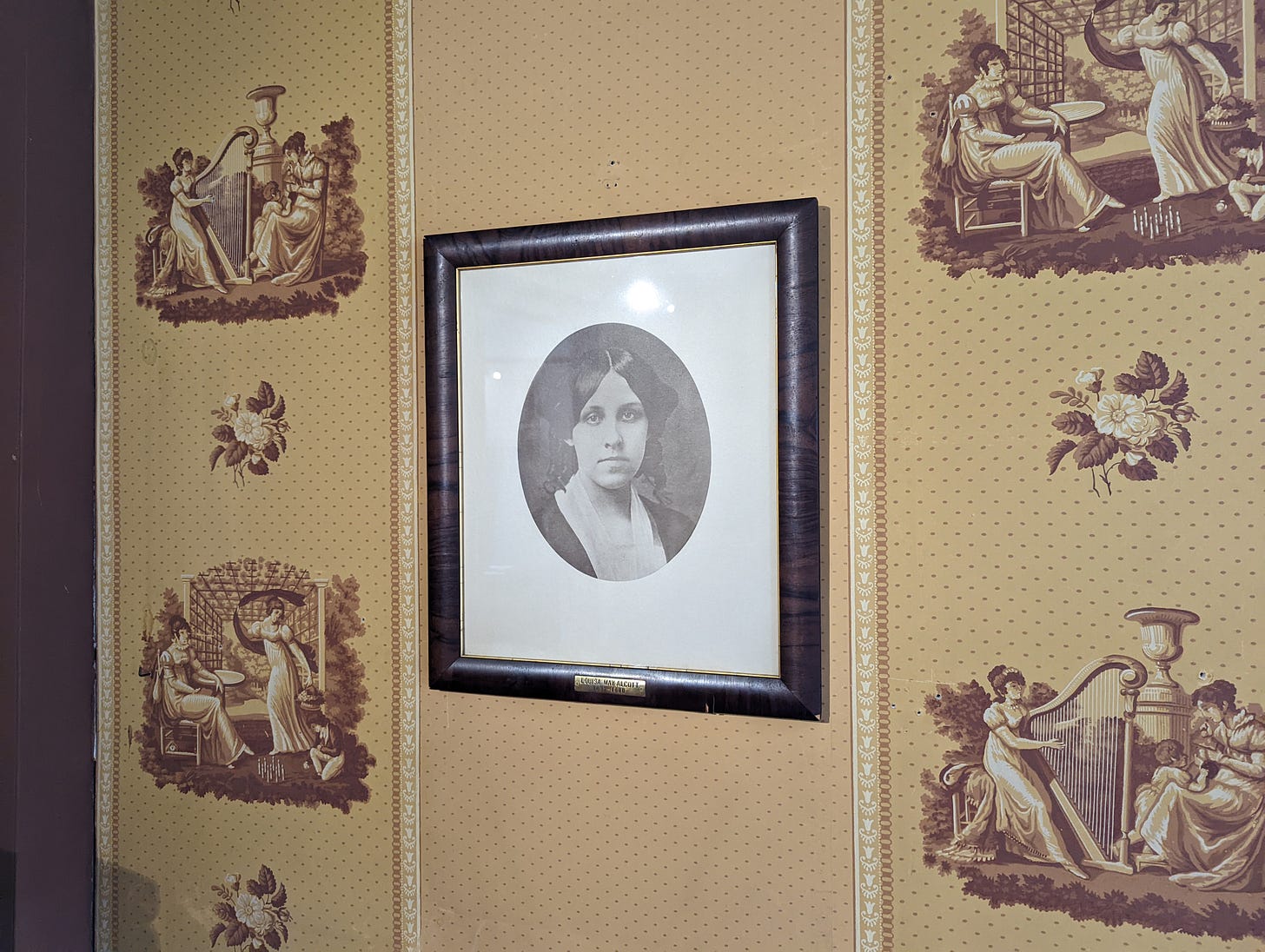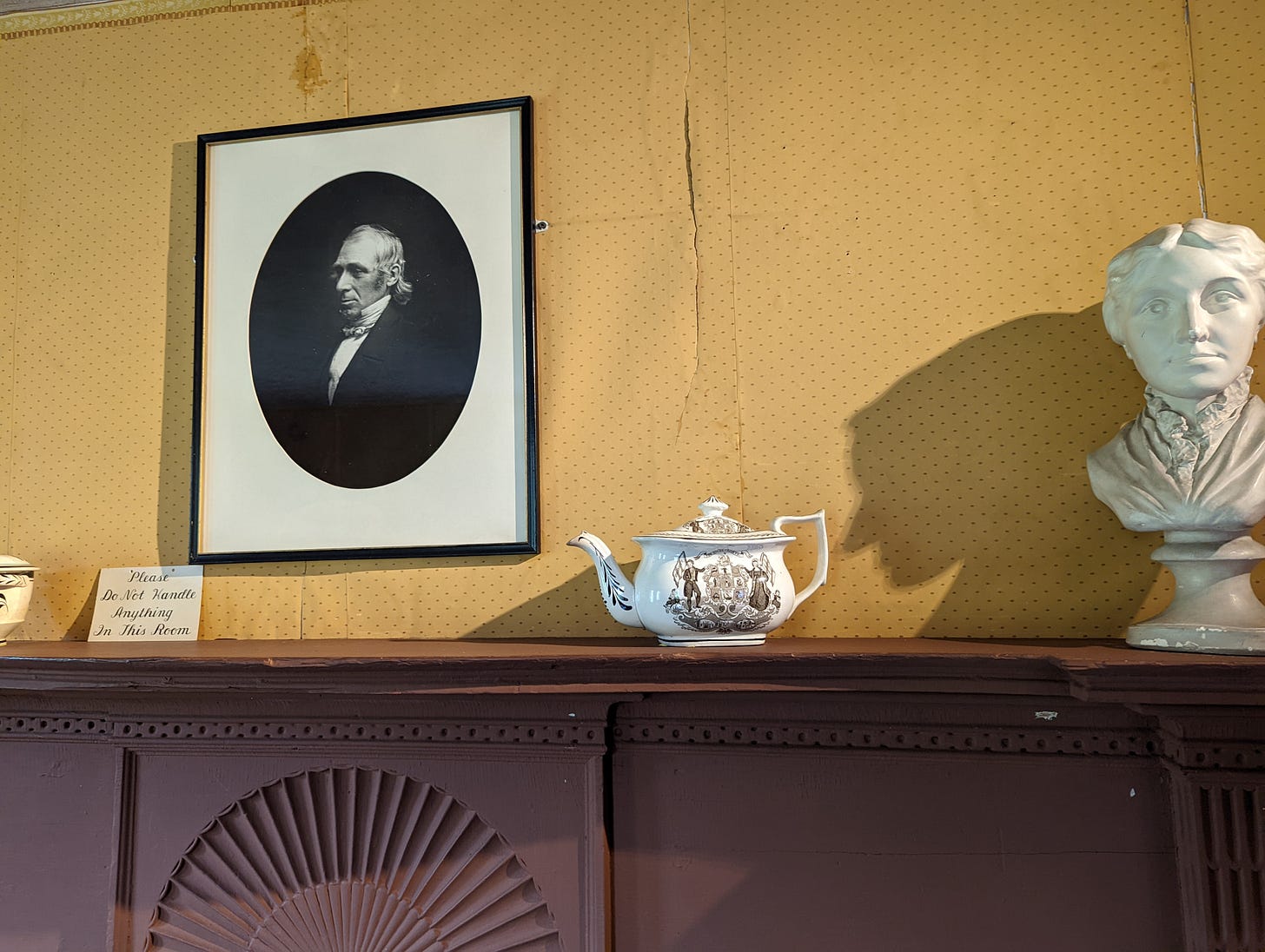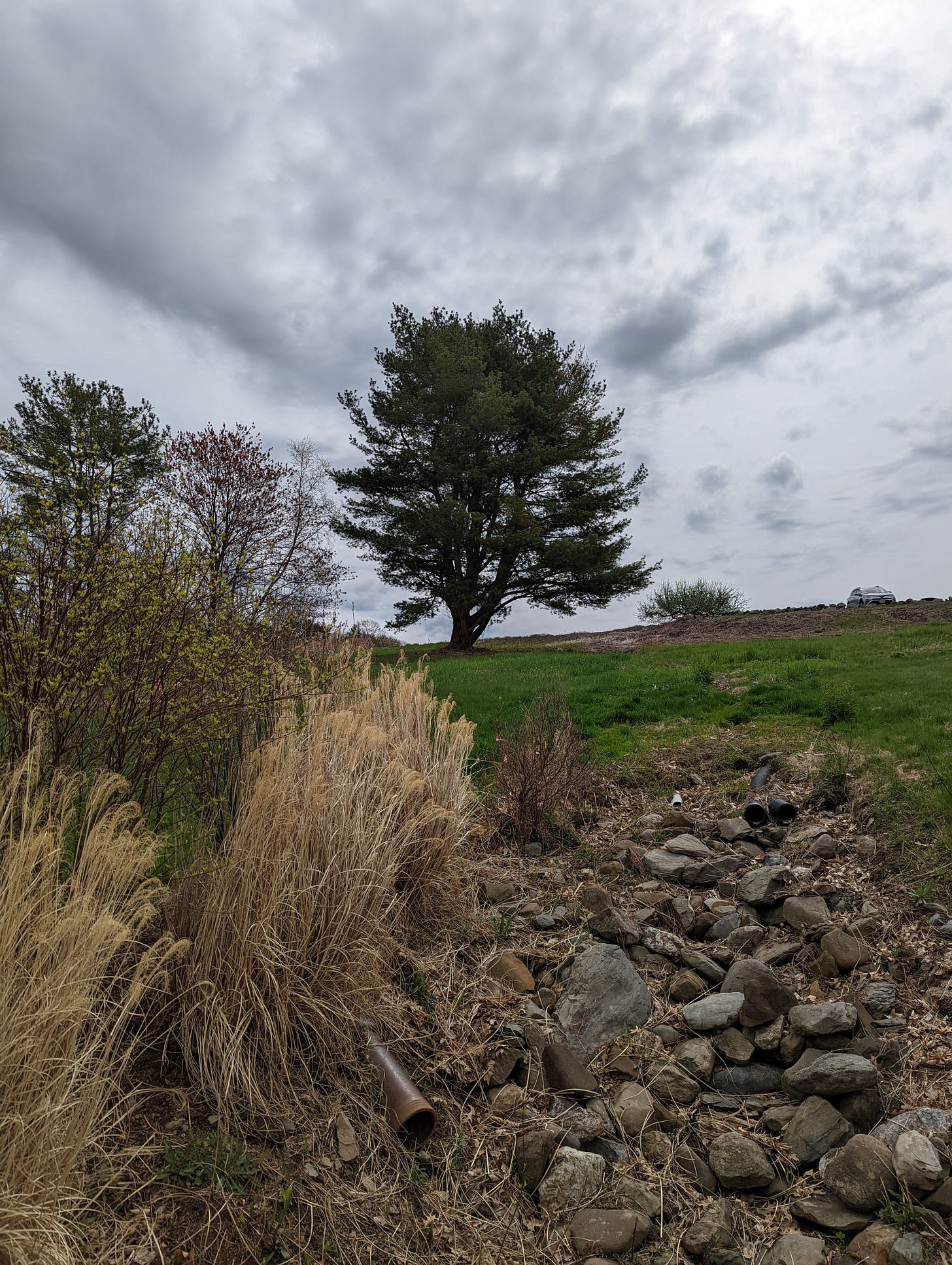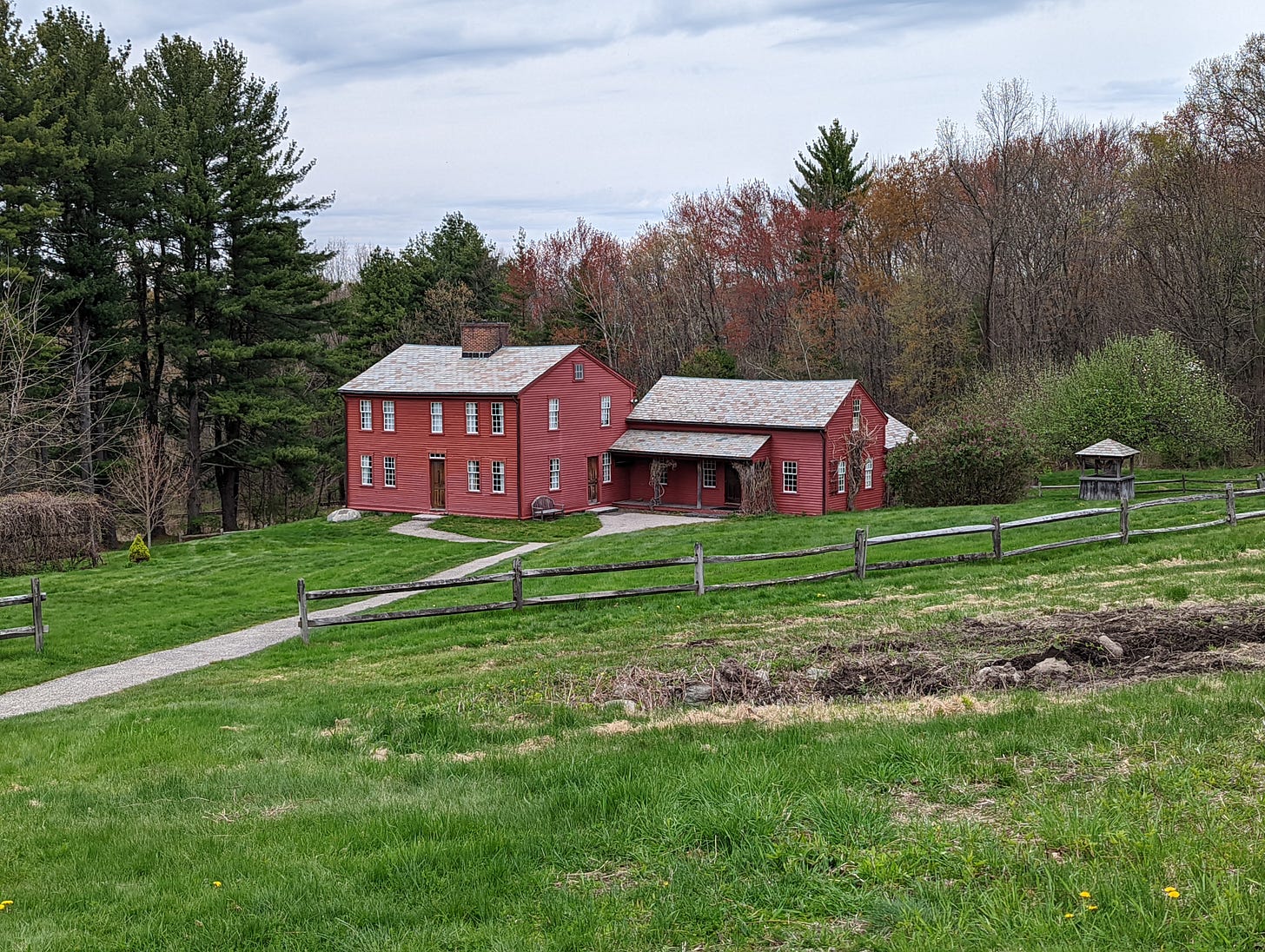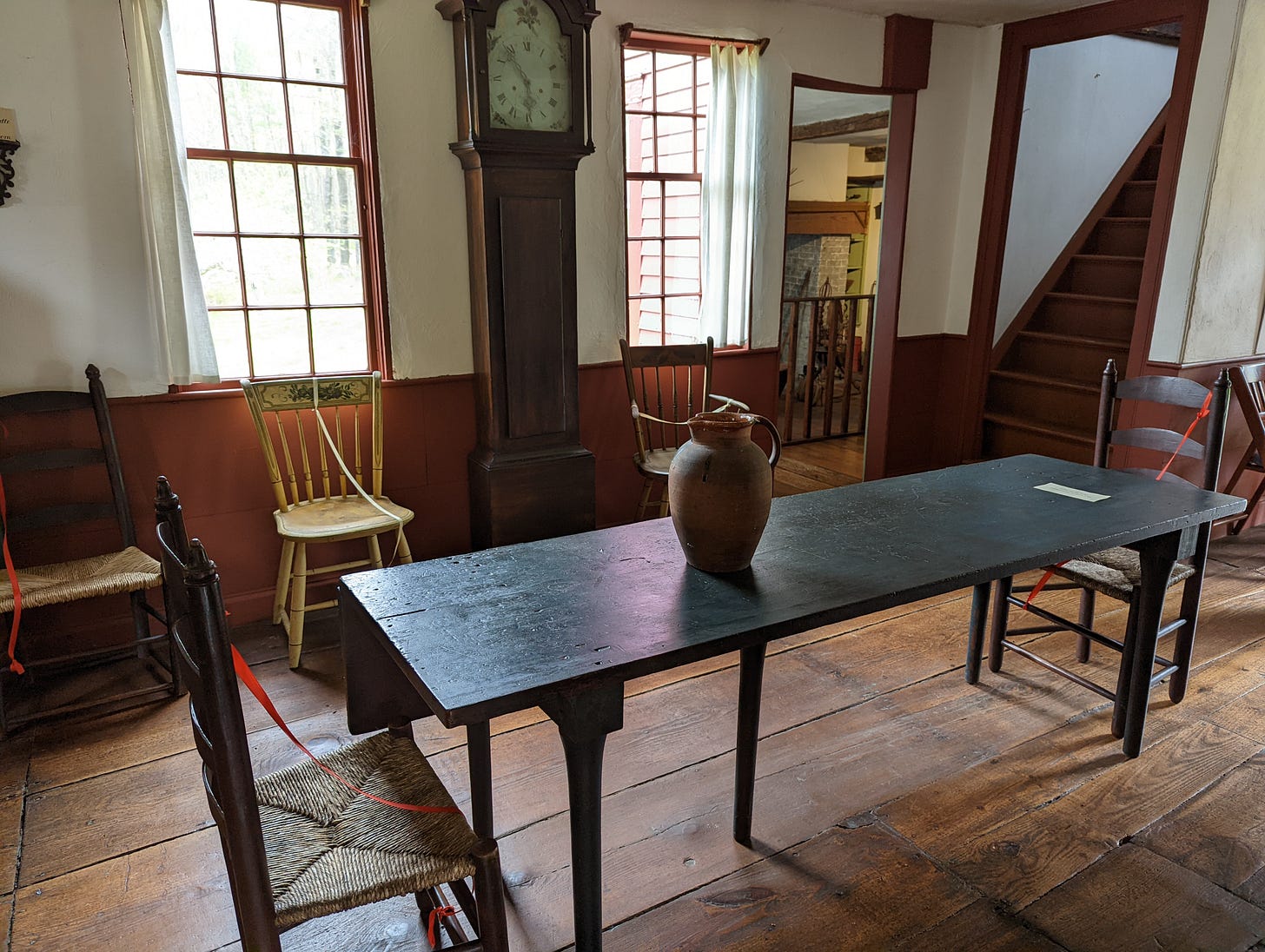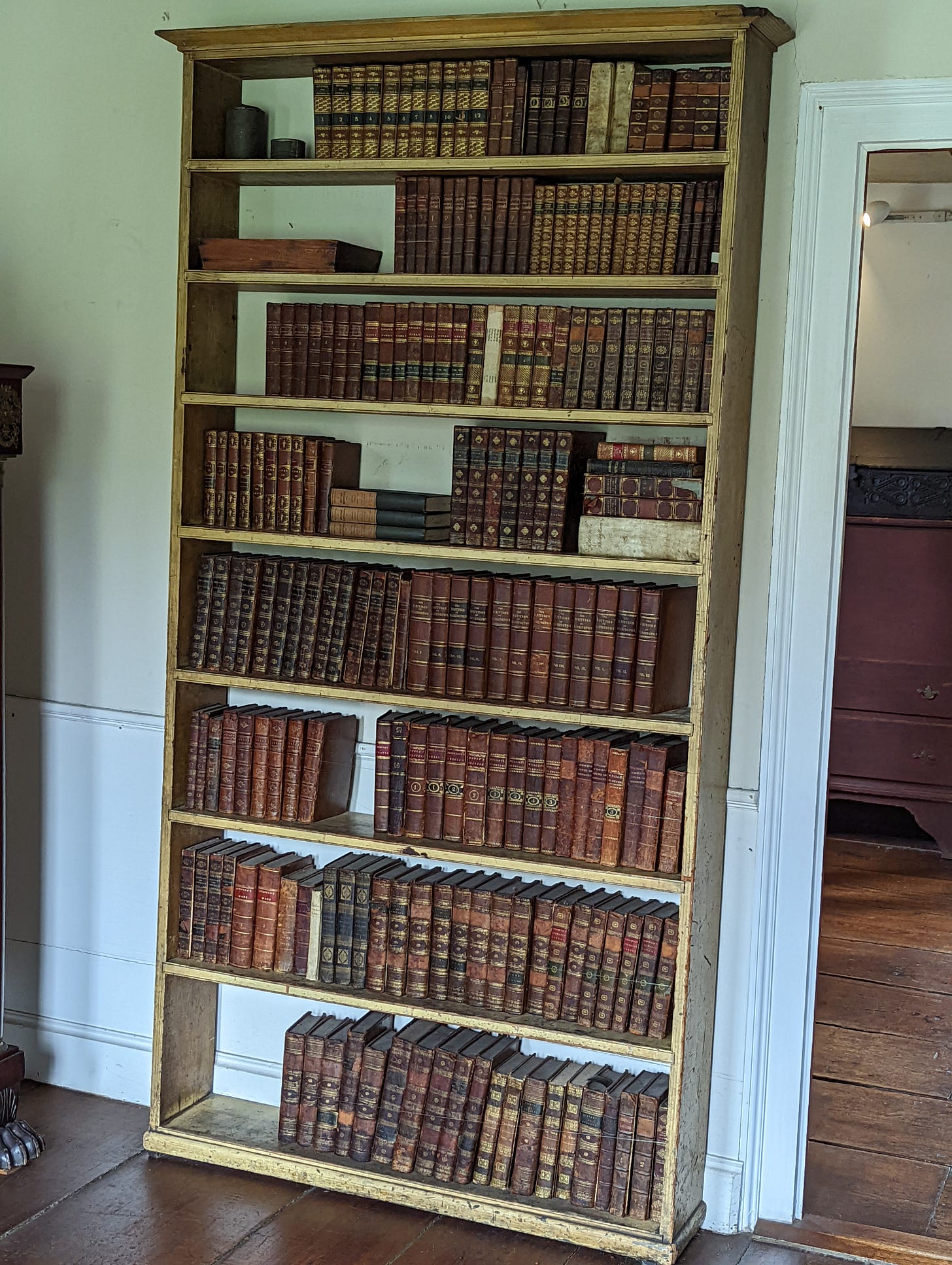Louisa May Alcott, the author of Little Women, lived for a short while in this red house on a farm called Fruitlands in Harvard, Massachusetts. Her father moved the family there in June 1843 when Louisa was ten years old. They stayed there until January 1844 after she had turned eleven. The seven months there had been her father’s experiment.
Louisa’s father, Bronson Alcott, was friends with two men whose names are likely familiar to you - Ralph Waldo Emerson and Henry David Thoreau.
Emerson, Thoreau, Alcott, and several other men and women reacted against the religious and cultural mindset of their day that the only way to know truth was through reasoning with your rational brain and verifying with your physical senses. Emerson and the friends disagreed. They believed that you could know God and truth directly through your intuition and feelings and through nature.
They also believed in self-reliance away from corrupt institutions, getting close to nature, and purifying your spirit by clean eating and living. They emphasized individualism, personal freedom, and perfectionism.
They became known as the Transcendentalists. Many of the Transcendentalists lived in New England and even formed a club called the Transcendentalist Club in Cambridge, Massachusetts.
One of the ways they tried to live out these beliefs was through forming self-sufficient communities. Louisa’s father and a man from England bought a farm, invited a few other families to live there, and named it Fruitlands. They were going to live primarily on the fruit from the ten trees on the property and perfect themselves in a community of like-minded people.
Along with the fruit, they would eat whatever else they could grow without using animal labor. All their clothes would be made from linen since cotton, silk, and wool were the products of “slave-labor, worm-slaughter, and sheep-robbery” as Louisa remembered it. They ate a vegan diet, drank only water, took baths in cold water, wrote in spiritual diaries about their progress towards self-control and perfection, and had plenty of philosophical discussions.
They were intellectuals, and unfortunately, knew almost nothing about agriculture and the strenuous physical labor involved! They couldn’t manage to grow enough food to feed themselves. Their Fruitlands “utopian” community experiment did not last, and neither did other similar experimental communities.
They were not free from criticism. The writer Nathaniel Hawthorne thought the Transcendentalists were insane. Edgar Allen Poe thought they had a disease. They did have some beliefs that seem strange.
But we recognize many American ideals that came out of their thinking, ideals that have both helped and harmed us through our history until now.
I spent a day at Fruitlands last week. The tour guide that day had so much historical knowledge to share with us. And after I learned, I relaxed by walking on one of the five trails, enjoying closeness to nature like a Transcendentalist! The café makes excellent lunches, vegan and otherwise. I’d go back to Fruitlands any day.
Click here for information about Fruitlands.
INSPIRATION - I set a number of my pictures of Fruitlands to two minutes of relaxing music for your enjoyment.





